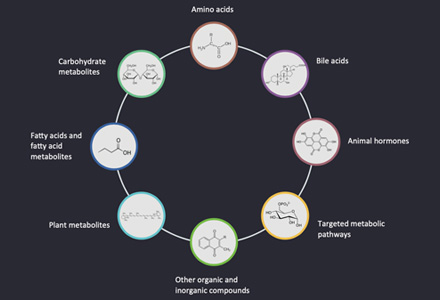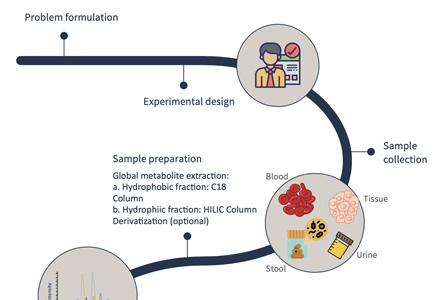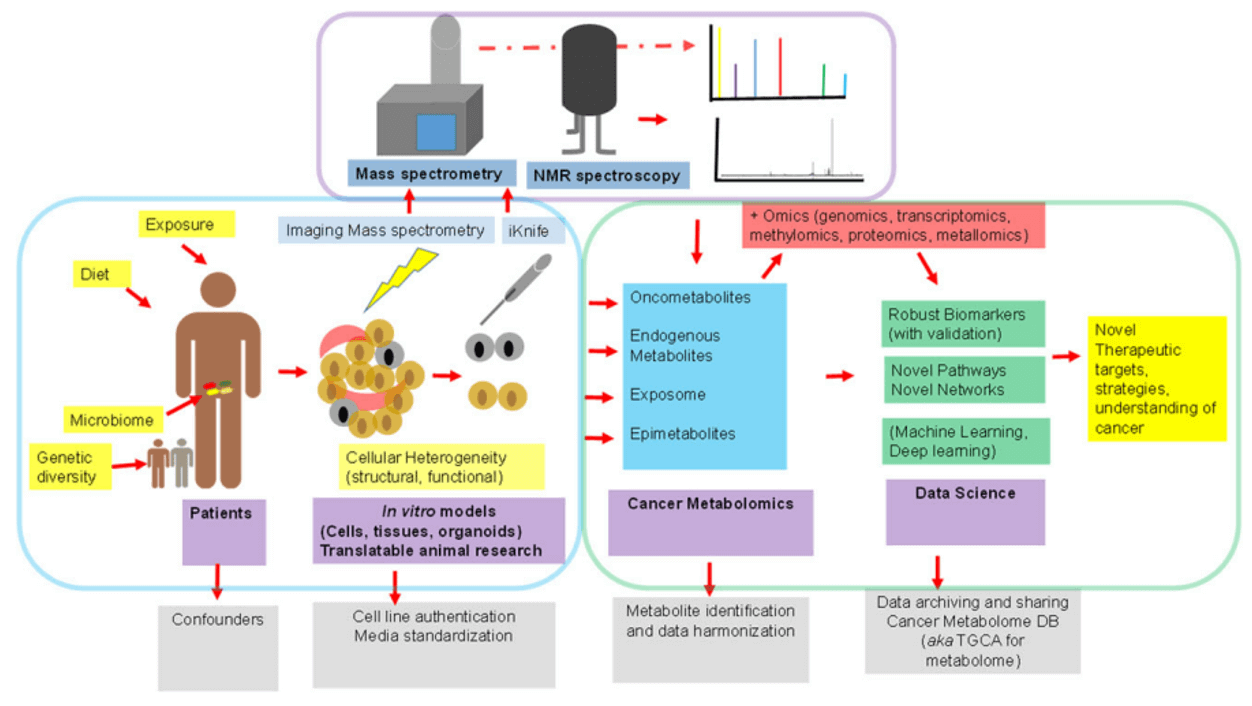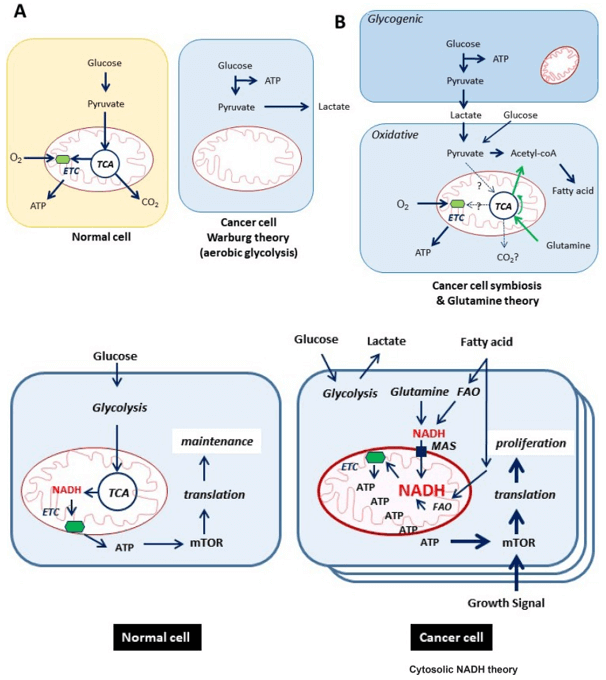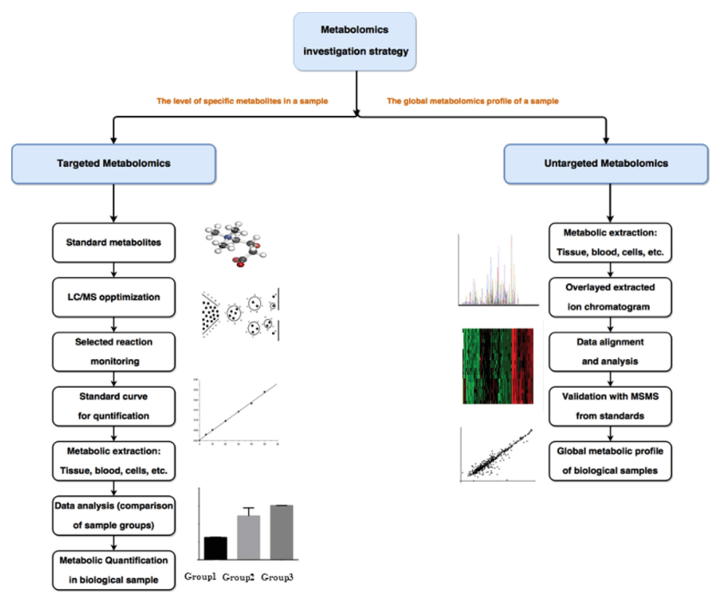Oncology Research Metabolomics Service
Metabolomics integrates high-throughput, high-resolution analytical techniques with bioinformatics to study metabolism and provide a unique perspective on organisms.
Genomics, transcriptomics, proteomics, and metabolomics detect and identify various molecules and study their functions at the DNA, mRNA, protein, and metabolite levels, respectively. Transcriptomics and proteomics are not yet able to fully express the full range of functions of an organism. Metabolomics quantifies the time-dependent multiplicity of metabolites produced by an organism's genetic modifications and by pathophysiological stimuli. The aim is to systematically elucidate the function of an organism by analyzing compounds at different developmental stages or in different growth environments and following their metabolic pathways with the aim of being able to map the full range of complex interactions between genes, proteins and metabolites.
Tumor and cancer is a complex disease in which multiple factors are involved causing disturbance of the functional balance of all systems of the body. Their metabolic effects are significantly different from those of normal tissues. The quantitative analysis of all small molecule metabolites in a given biological system by metabolomics at a given time and condition allows to quantify the overall situation of biological endogenous metabolites or to analyze the patterns that cause their endogenous and exogenous changes.
Different body fluids have different origins, distribution and functions, and therefore contain metabolite components that vary widely. Creative Proteomics provides metabolomics solutions for oncology research to accelerate the progress of relevant scientific research projects. Many biological tissues and fluids can be studied for metabolomics, including saliva, blood, urine, bile, emulsions, cerebrospinal fluid, and tissue extracts.
Oncology Research Metabolomics Solutions
- Identification of tumor-specific metabolites
Metabolomics looks for tumor-specific metabolites from the dynamic metabolic pathways of the body and has good applications in all stages. In particular, it has significant advantages in disease pattern classification and pathological staging.
- Protein metabolites (amino acids): the specificity of tumor protein synthesis and catabolism can be used for marker detection.
- Nucleic acid metabolites (nucleotides): tumor cells are metabolically vigorous, with accelerated DNA and RNA synthesis and increased nucleotides, which can provide many indicators of nucleotide metabolism.
- Lipid metabolites: Analysis of lipid concentration and localization changes during various types of malignancies and inflammation.
- Glucose metabolites: Analysis of changes in sugar metabolism, such as purine and pyrimidine metabolism, glycolipid metabolism, and energy metabolism.
- Analysis of molecular mechanisms of tumors in combination with systems biology
Monitoring changes in the transcriptional up- or down-regulation effects of oncogenes reveals the relationship between genes and phenotypes and provides new ideas for the study of tumor mechanisms.
Metabolomics Analysis Process for Oncology Research
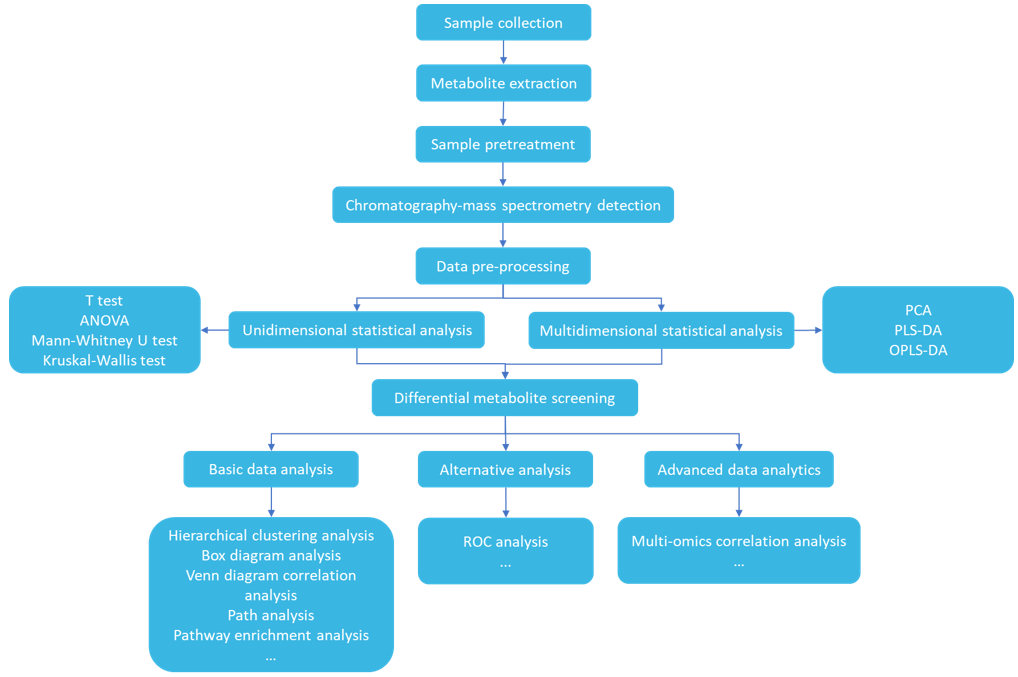
Technology Platform for Metabolomics Analysis
Multiple analytical platforms, including GC-MS, LC-MS, UPLC-MS. Thousands of metabolites can be screened from a single biological sample, providing a comprehensive approach for probing disease mechanisms.
| Chromatography | Mass Spectrometry |
GC (Q Exactive) (- mode MS)
HPLC: HILIC (+/- mode MS)
HPLC: RP C18 (+/-mode MS)
IC (- mode MS) | Q Exactive MS
Orbitrap Tribrid MS |
Creative Proteomics is a well-established partner in biopharmaceutical research and has extensive experience in metabolomics analysis. We provide solutions for oncology research in the direction of metabolomics analysis, accelerating the exploration of new horizons in science. If you want to know more, please contact us. Looking forward to cooperating with you.
For Research Use Only. Not for use in diagnostic procedures.



